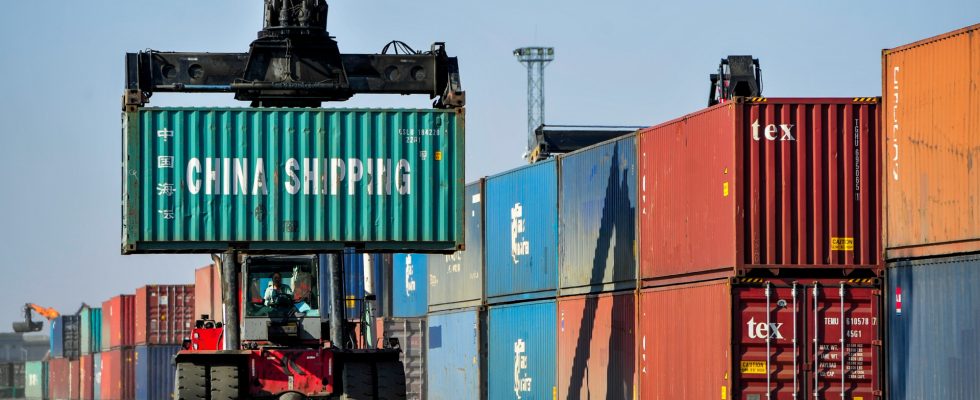analysis
Status: 04/10/2023 3:18 p.m
The economic shockwaves of the war against Ukraine have once again made Europe aware of its dependence on China. How are companies reacting to growing concerns about Beijing’s drive for power?
“If we no longer have China, prosperity in Germany will decrease.” With this statement, Holger Engelmann summarizes great fears in one sentence. Engelmann is CEO of auto parts supplier Webasto – a family company with strong ties to China. Just like many other companies in Germany and the European Union. A break with China would endanger their existence.
But over the course of President Xi Jinping’s reign, the danger has grown that China will put political power ahead of economic interests. A dilemma for companies like Webasto, which generates more than a third of its sales there and has eleven production sites in China. Here you know: simply getting out of the connection is not possible. Even though Webasto is opening up a new production area in the e-mobility battery sector: China is the leader in the lithium-ion battery business and is also an important growth market for e-mobility.
The EU is trying to counteract this
Almost 80 percent of the global production of lithium-ion batteries currently takes place in China. The EU policy is now countering this – with the “European Battery Innovation”. In 2021, around three billion euros in funding were approved. With success: Many new battery plants are currently being built in Europe. But only a few dare to tackle the core part – the battery cell, for which rare earths are needed. And even if the cells were produced here: The raw materials and rare earths required for this come mainly from China.
So what else can Europe do about it? A tool is innovation. In France, for example, the startup “Tiamat” is developing battery cells from domestic sodium in order to become independent of rare earths. But even here you can’t get away from Chinese supplier products: the sodium comes from France – many other components of this innovation still come from huge factories in Asia. This is not how Europe can win the battle for key technologies.
A European answer to China’s strategies?
The leadership in Beijing has clear plans. With the “Made in China 2025” strategy, she has defined ten sectors in which China initially wants to become the leading producer in the domestic market. By the middle of the millennium, they want to be dominant worldwide.
According to the chairman of the Trade Committee in the EU Parliament, Bernd Lange, China does not use any Western technologies because it wants to be autonomous and independent. Such an industrial policy strategy has long been sought in vain in this country. After all, the EU Commission reacted in mid-March and submitted an industrial law for approval.
Federal government wants to redefine relationship
“Change through trade” was the motto for a long time – also with China. The hope was that economic exchanges would lead to rapprochement. People didn’t look too closely at human rights, child labor or political persecution.
The traffic light government wants to change that: In the coalition agreement, they agreed to realign Germany’s relationship with China. There is talk of a “systemic rivalry”, of less dependency and a comprehensive strategy. But little has happened since then. Papers are still being written in the ministries. The Federal Ministry of Economics is considering new rules for companies operating in China.
Investment aid as a solution?
The EU is currently discussing whether billions of taxpayers’ money should flow into private companies as investment aid in the future. But can China’s urge to expand be stopped in this way? Mikko Huotari, director of the Mercator Institute for China Studies in Berlin, doesn’t believe it. The researcher, on the other hand, is certain that China can currently stop itself above all. And Huotari relies on the “capacity, innovative strength and fantastic companies” in this country.
In the meantime, the population and politicians are also aware “of what is at stake”. In a keynote speech, EU Commission President Ursula von der Leyen recently announced a tougher approach towards China. So far, however, EU policy has hardly been able to point to concrete measures.
It’s about much more than trade
The world power is no longer just about trade and production: China is striving for a new world order. And China’s tone is becoming more assertive and aggressive. What if Xi Jinping attacks Taiwan?
Then there will be sanctions, Lange is sure that economic relations would be severed rapidly. The chairman of the Trade Committee in the EU Parliament therefore clearly warns of a possible escalation in the Taiwan conflict. “But this is a much worse momentum for the European Union than what we experienced with Russia,” he says. The Taiwan conflict hangs over the world economy like the sword of Damocles.

